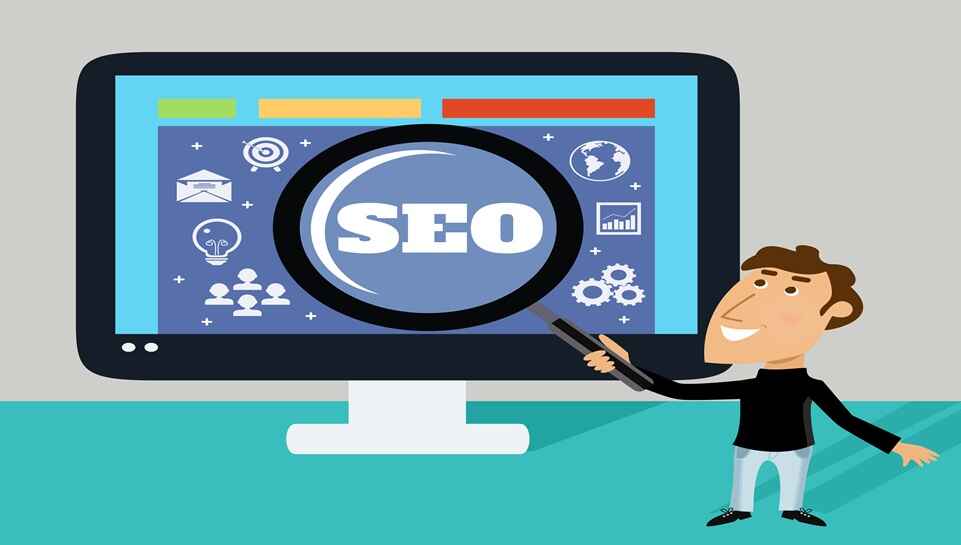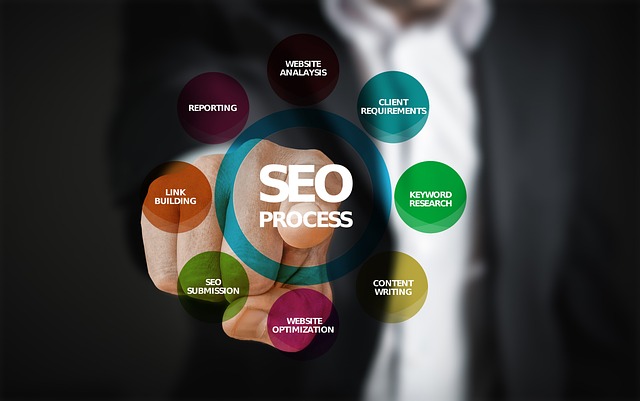In today’s digital landscape, content plays a crucial role in driving traffic and enhancing online visibility. With the rise of AI-powered tools like ChatGPT, businesses are increasingly turning to AI-generated content to streamline content creation. But how does AI content affect SEO? Is it beneficial or detrimental? This article by The Digital IT Solutions delves into the impact of ChatGPT-generated content on SEO, exploring both its advantages and potential risks. Contact us today at (788) 020-2273 for expert SEO services tailored to your business needs.
Understanding AI-Generated Content
AI-generated content refers to text created by artificial intelligence systems based on specific inputs. These tools analyze data, user inputs, and natural language patterns to produce coherent content, such as blog posts, product descriptions, and social media posts.
Examples of AI-generated content include:
- Blog articles on trending topics
- E-commerce product descriptions
- Social media captions
- Email newsletters
Businesses use AI content for several reasons:
- Efficiency: AI tools can produce large volumes of content quickly.
- Cost-Effectiveness: Reduces reliance on human writers.
- Consistency: Ensures consistent tone and messaging across platforms.
However, while AI content offers advantages in terms of scalability and speed, it raises concerns regarding originality, authenticity, and SEO performance. In the next section, we will examine how AI content interacts with SEO and what businesses should consider when using tools like ChatGPT.
AI-Generated Content and SEO – The Basics

Search engines like Google prioritize high-quality content that provides value to users. To assess content quality, search engines use complex algorithms that consider factors such as relevance to the search query, originality, and user engagement. Relevance ensures that content matches what users are searching for, while originality helps avoid duplication penalties. User engagement, measured by metrics like time spent on the page and bounce rate, signals whether the content meets visitor expectations.
AI-generated content, including ChatGPT-created text, can be helpful in producing relevant and coherent material quickly. However, it also has potential pitfalls. Poorly crafted AI content may lack depth, sound repetitive, or miss the nuance required for high engagement. This can result in thin content that fails to satisfy user intent. Additionally, if AI content is overly stuffed with keywords or duplicates existing content, it can negatively impact SEO rankings. Businesses should be cautious and ensure AI-generated content aligns with quality standards to avoid such pitfalls.
Google Guidelines on AI Content
Google’s official stance on AI-generated content emphasizes quality and user value. According to Google guidelines, content—whether AI-generated or human-written—must follow the principles of E-E-A-T: Experience, Expertise, Authoritativeness, and Trustworthiness. These factors help Google evaluate if content is reliable and useful.
AI content that lacks these elements or appears spammy risks penalties. Common issues include keyword stuffing, which tries to manipulate rankings with unnatural keyword frequency, and duplicate content that does not add unique value. Google’s algorithms are designed to detect and demote low-quality or spammy content to improve user experience.
To comply with Google guidelines when using AI content, businesses should:
- Ensure content is factually accurate and relevant.
- Avoid over-optimization with excessive keywords.
- Incorporate authoritative sources and demonstrate expertise.
- Regularly update content to maintain accuracy and relevance.
By adhering to these rules, AI-generated content can align with Google’s quality standards and support SEO goals.
Is AI Content Bad for SEO?

AI-generated content is not inherently bad for SEO, but its effectiveness depends on implementation. On the positive side, AI tools help businesses create content faster and more consistently, which can improve site activity and keyword coverage. AI content can also be useful for generating drafts or ideas that human writers can refine.
However, poorly optimized AI content can harm SEO. Thin content that lacks depth or originality tends to rank poorly and can lead to user dissatisfaction. Search engines may flag repetitive or plagiarized AI content as spam. For example, AI-generated product descriptions copied from generic templates without customization often perform badly in search rankings.
Examples of flagged AI content include:
- Pages with keyword stuffing making the text unnatural.
- Duplicate articles spread across multiple sites.
- Content lacking actionable or unique insights.
Ultimately, businesses should balance AI use with human expertise to ensure content is valuable, engaging, and complies with SEO best practices.
Optimizing AI-Generated Content for SEO
To ensure AI-generated content like that produced by ChatGPT supports SEO goals, businesses should focus on key optimization strategies. First, keyword integration must be natural and relevant. Incorporate primary keywords such as “Google guidelines AI content,” “AI-generated content and SEO,” and “does ChatGPT generated text hurt your SEO” seamlessly into headings, paragraphs, and metadata without keyword stuffing.
Next, prioritize originality and a human-like flow. AI content should be reviewed and edited to ensure it sounds authentic, engaging, and provides unique value. Avoid generic phrasing or robotic-sounding sentences by refining AI drafts with human creativity.
Readability and structure also play a critical role in SEO. Use clear headings, subheadings, bullet points, and relevant images to break up text and enhance user experience. Well-structured content improves dwell time and decreases bounce rates, signaling quality to search engines.
Finally, fact-check and edit all AI content carefully for accuracy, grammar, and coherence. Misinformation or errors can hurt credibility and SEO rankings. Ensure that AI-generated text aligns with brand voice and maintains professionalism.
Monitoring the Impact of AI Content on SEO

To measure how AI-generated content affects SEO performance, it is important to monitor key metrics regularly. Analyze organic traffic to see if new content attracts visitors. Track keyword rankings to determine if pages improve their positions in search results. Additionally, monitor bounce rates and time on page to gauge user engagement and content relevance.
Utilize tools like Google Analytics, SEMrush, or Ahrefs to gain detailed insights into how AI content performs. These platforms help identify strengths and weaknesses in your strategy, enabling timely adjustments.
Watch for signs that AI content may be harming SEO, such as sudden drops in traffic, increased bounce rates, or penalties from Google. Early detection allows businesses to optimize or replace problematic content before it damages overall rankings.
Best Practices for Using AI Content Effectively
The most successful content strategies combine AI efficiency with human creativity. Use AI tools like ChatGPT to generate initial drafts, topic ideas, or bulk content but always have skilled editors review and enhance the output.
Maintain a balanced content strategy by mixing AI-generated posts with original, human-written pieces that showcase deep expertise and brand personality. This approach helps maintain authenticity and authority.
Regularly review and update AI-generated content to keep it relevant and aligned with evolving SEO trends and Google guidelines. Fresh content signals to search engines that your site is active and trustworthy.
Balancing AI Content with SEO Best Practices
AI-generated content, including ChatGPT text, offers powerful opportunities for businesses to scale content production. However, its impact on SEO depends heavily on how well it adheres to Google guidelines and content quality standards. By optimizing AI content for keywords, originality, readability, and accuracy, businesses can benefit without risking penalties or ranking drops.
The Digital IT Solutions specializes in SEO strategies in NYC that blend AI technology with expert human oversight to maximize online visibility. Discover our comprehensive suite of tools designed to streamline digital marketing tasks:
✅ Free Image Converter: Convert images to various formats (JPEG, PNG, WebP) to maintain quality while reducing file size.
✅ Image Optimizer: Compress images to improve page load speed without losing quality.
✅ Campaign Link Tracker: Create custom UTM links to track and analyze your marketing campaigns.
✅ SEO Keyword Planner: Discover high-impact keywords to optimize your content for better search engine rankings.
✅ Meta Tag Optimizer: Generate SEO-friendly meta tags to boost click-through rates and search visibility.
✅ Email Subject Line Optimizer: Create compelling subject lines to increase email open rates.
✅ Text Formatter: Easily convert text to uppercase, lowercase, title case, and more for consistent formatting.
✅ Content Summarizer: Condense lengthy content while preserving key points for faster consumption.
✅ Currency Calculator: Get accurate, real-time exchange rates for fast currency conversions.
Ready to elevate your digital marketing strategy? Contact us at (788) 020-2273 to learn how our AI-powered tools and tailored strategies can help your business achieve measurable results.




